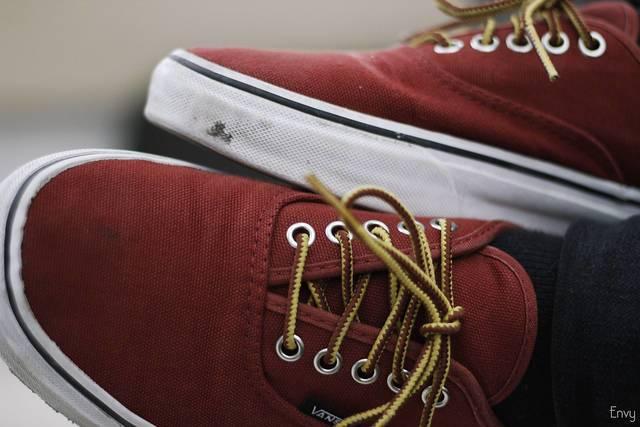
On Monday VF Corp., the $12 billion apparel company that includes brands such as Timberland, The North Face and Vans, announced what it describes as its first “Forest Derived Materials Policy.”
The company says these new guidelines will help drive its purchasing decisions to source more sustainable forest materials and products. The promise to increase what the company can do in order to reduce deforestation builds upon the responsible sourcing policies outlined in its most recent annual report.
VF claims to partner with several NGOs including Canopy, a nonprofit that works with companies in many sectors, most notably in publishing and fashion. Canopy works with various companies such as H&M, Inditex/Zara, Levi’s, Sprint and Penguin-Random House to incorporate more sustainable raw materials into everything from textiles to paper. Materials that Canopy touts as more responsible include pulp and paper products made from agricultural waste such as straw, recycled paper and synthetic fibers derived from sources other than wood.
VF has worked to steadily clean up its supply chain in recent years. In 2013, the company reached its goal to source 1 percent of its cotton certified by the Better Cotton Initiative (BCI); VF tripled that goal in 2015. That may sound like peanuts initially, but VF says it alone purchases 1 percent of the world’s cotton. Furthermore, BCI has long struggled to meet the demand for its more sustainable cotton that is becoming even more embraced by companies such as Adidas and H&M.
The acquisition of Timberland in 2011 helped accelerate VF's commitments to sustainability. Timberland held public quarterly and annual sustainability conference calls before the was a popular buzzword within the apparel industry. And last year, the New Hampshire-based outfitter announced several new sourcing policies it plans to achieve by 2020. New manufacturing commitments include having at least one renewable, organic or recycled component in all of its footwear; 100 percent of its cotton either certified organic, from BCI or of U.S. origin; and the purchase of leather from tanneries that are only certified as silver or gold by the Leather Working Group.
Other companies under the VF umbrella have also promised to improve their materials sourcing. The North Face, for example, says it is incorporating more recycled plastic from soda and water bottles within its high-performance synthetic materials while slashing the use of water, chemicals, and energy throughout its manufacturing. And Vans is including more BCI cotton in its iconic slip-on and skateboarding shoes, and also adopted the Sustainable Apparel Coalition’s Higg index as it strives to use smarter and less wasteful packaging.
More efforts like these from VF are needed to diffuse NGOs’ accusations that the fashion industry is a major cause behind global deforestation.
The Rainforest Action Network, for example, asserts that the demand for fabrics such as viscose, rayon and modal are responsible for the felling of at least 120 million trees annually. And last year, the Switzerland-based International Union for Conservation of Nature (IUCN) estimated that as much as 20 percent of all industrial water pollution can be traced to the dyeing and processing of textiles while leading to the clear-cutting of more forests.
Image credit: Manny Valdes/Flickr

Leon Kaye has written for 3p since 2010 and become executive editor in 2018. His previous work includes writing for the Guardian as well as other online and print publications. In addition, he's worked in sales executive roles within technology and financial research companies, as well as for a public relations firm, for which he consulted with one of the globe’s leading sustainability initiatives. Currently living in Central California, he’s traveled to 70-plus countries and has lived and worked in South Korea, the United Arab Emirates and Uruguay.
Leon’s an alum of Fresno State, the University of Maryland, Baltimore County and the University of Southern California's Marshall Business School. He enjoys traveling abroad as well as exploring California’s Central Coast and the Sierra Nevadas.














